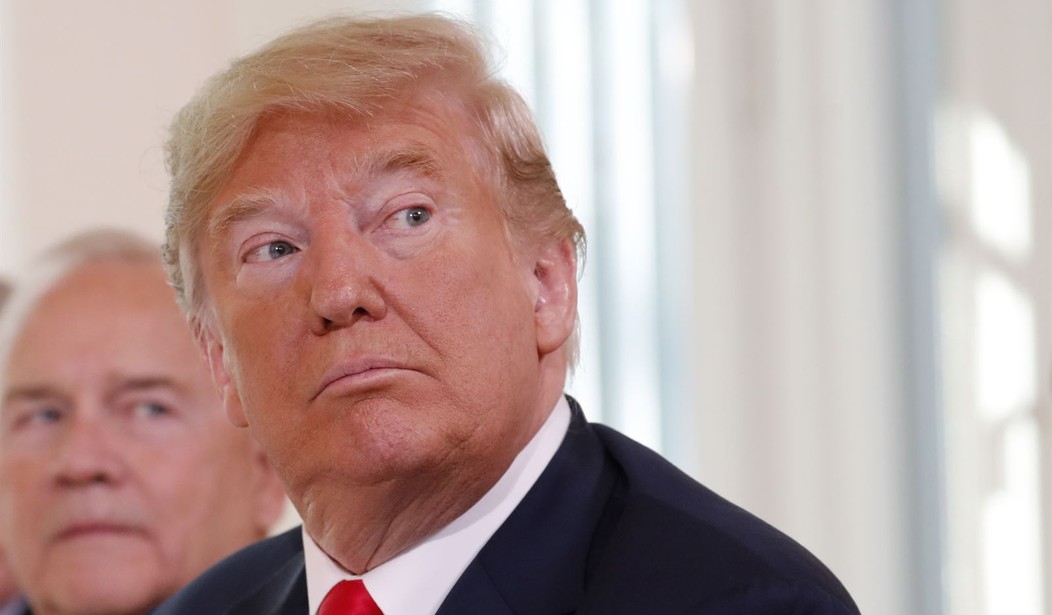President Trump’s recent tariffs battle, a position he has been consistently promoting since the 1980s, with the European Union, Canada, China, and others have left some Democrat heads spinning. While many are politically oriented to attack President Trump no matter what his action or stance, the recent spat has left some on the left running in circles as they try to resolve long-standing Democratic Party consensus support for mild protectionism with a need to denounce and oppose President Trump.
Free trade has for several decades been part of Republican Party conservative orthodoxy and is well-built into the party’s current institutional infrastructure, which is why many Republican leaders similarly have found difficult footing in how they approach their desire to support an open international exchange system while also remaining supportive of the president.
We are a long-ways away from the days of the GOP’s Theodore Roosevelt and William McKinley, known as the “Napoleon of Protection” and whose “McKinley Tariff” of up to 49.5 percent on many goods makes Trump’s current 25 percent tariffs seem quite distant in comparison. This was back in the day when heavily protectionist tariff policy, as well as other ideas such as some sort of metal standard for money, was considered to be a consensus position within the United States.
On this and many issues Trump has shaken up much of the norms we are used to in our political discourse in recent years. However, as I’ve long said, Trump was less the cause of such a disruption but rather merely a symptom of it, as the direction our political dichotomy had taken in the years prior had left millions of voters disenchanted and feeling as if their republic was no longer responding to them.
Recommended
Sometimes we are so used to our current momentary way of doing things that we forget there was a time not so long ago when practices, ideas, and consensuses were quite different. Groupthink and herd-mentality in politics is one of the most defining features, particularly in our currently still-sports-like discourse where it often seems as much about our jerseys as the content behind them.
When Trump began his campaign in 2015 we saw how he challenged this orthodoxy firsthand and faced the full backlash from it, as every even minor dalliance he previously had with the Democratic Party was jumped on and shredded by his over 16 primary opponents. He was accused on a near daily basis of impurity, of the ever-repeated “not a conservative,” of at the same time being both on the extreme end of conservatism and too far to the middle or left, and even of being a secret covert agent sent by Bill Clinton.
Whether he had morphed his position, as countless millions of Americans do as real people with evolving worldviews, or expressed still-current support for some Democratic Party position, the idea that he was not playing on the “team’s” set slate somehow made him a heretic to his vocal public opponents.
Yet it clearly did not distance him from GOP primary voters, many of whom understood firsthand Trump’s shift from some left-leaning or moderate positions to more conservative spots or sympathized with a pragmatic approach that had been lost after several years of GOP leaders trying to cater, in the wake of the 2010 Tea Party primary wave, to the most vocal extremes at the cost of the “Silent Majority.”
With now-President Trump we similarly see this approach creating immense uncertainty and discord within both parties as they struggle with new political situations that their previously cut-and-dry playbook of past years did not prepare them for.
On the other hand, it also had created immense opportunity for our political system to free itself from some of the political dance of past years that had prevented serious consensus-building action and out-of-the-box thinking that could settle much of the hyperpolarization and gridlock that we’ve unfortunately almost become accustomed to.
On tariffs, although personally I believe a free-trade system is the kind that best promotes efficiency and productivity, President Trump’s shakeup is positive in that it further creates the opening for exploring new policy discussions and ideas that previously were lost in the middle as our two teams cut off the interrelating links that previously held them, and our republic, together.
The current tariffs dispute is a reminder that President Trump indeed was once a Democrat. Like millions of other current Republicans, he decided to #WalkAway from the Democrats but in doing so did not completely abandon all of it – rather bringing with him some breaths of fresh air that has the potential to continue to create opportunity for our country to approach many of our policy problems with a new and pragmatic mindset.

























Join the conversation as a VIP Member